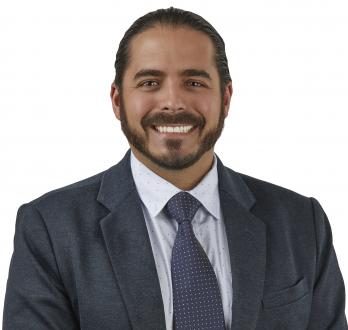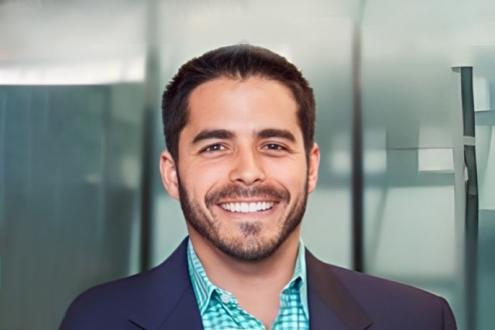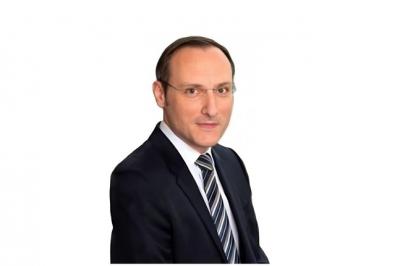Janus Henderson Expert Agustin Mohedas on Healthcare Innovation and the Private Investor

Agustin Mohedas of Janus Henderson Investors
Oct 31, 2023
2023 looks set to be a landmark year for healthcare innovation, with a record number of new drug launches and therapies approved by the FDA in the US, offering hope to patients with previously unmet medical needs. And more are in progress. These advancements span a wide range of diseases, from cancer and obesity to Alzheimer's and rare genetic conditions. Combined with an ageing population – especially in the West and Japan but increasingly so in leading developing markets such as China - that is driving demand, this backdrop presents a compelling commercial opportunity for investors. Additionally, healthcare offers defensive qualities in the face of market volatility, making pharmaceutical and biotech companies a resilient investment choice. For these key reasons and many more healthcare presents a compelling opportunity for your portfolio through its complementary growth and defensive characteristics. In an informative and in-depth Hubbis Digital Dialogue event on October 20, Agustin Mohedas, Portfolio Manager and Research Analyst at Janus Henderson Investors spoke extensively and offered delegates some valuable guidance on exactly why he believes healthcare should feature high in their portfolio priorities, and why he believes this is a complex field of science and regulation that requires a specialist and actively managed approach.
In an environment of economic and financial uncertainty, Agustin commented that healthcare is a “great place” for clients because of both growth and defensive characteristics. “During times of market weakness, healthcare has been shown to outperform the wider market, and also when coming out of a recession as well,” he reported, explaining that Janus Henderson offers a variety of healthcare-related funds to capture both the significant upside potential and mitigate downside exposures.
He said their global life science strategy has about a 30% allocation to biotech, which over twice the benchmark weight in absolute terms, and they are also invested in innovative medical device companies that offer attractive growth at good prices in his opinion. On the defensive side, they have exposure to pharma and healthcare services where their revenues tend not to be very economically sensitive.
2023 – a year of consolidation
He conceded that year to date, healthcare has been somewhat of an under-performer relative to the major indices such as the S&P 500 or the MSCI World, but he considers it to be more of a time of consolidation for healthcare, in the aftermath of the pandemic, which turbocharged revenues. “We were above trend in '21 and '22, below trend this year, and we think we will reaccelerate next year, and that will be a significant catalyst for healthcare companies doing better in the year to come,” he explained.
Alzheimer’s – tragically, a huge opportunity
He mentioned key areas of focus and impetus, such as therapeutics for Alzheimer's disease and obesity as probably the two biggest areas in revenue growth drivers in the next 5 to 10 years.
“We think Alzheimer's can become a 10-to-20-billion-dollar market opportunity, driven of course by the fact that we have an ageing population,” he said. “It looks like an unstoppable and growing trend. We are looking not only at the major drugs out there and emerging but also at the next-generation solutions and technology companies that could potentially provide that next set of revenue growth ahead.” He highlighted Eli Lilly and Biogen as a mainstream players in this field but also a range of smaller companies they see exciting developments coming through.
Obesity – a worldwide epidemic
He then offered a short overview of opportunities related to obesity, clearly a worldwide issue that has swept the US and also the developed world and is now reaching deep into the emerging economies as their wealth and consumption rise. He highlighted the stellar performance of Novo Nordisk which has now become the largest company in Europe on the back of their sales of Ozempic, their weight loss drug and Eli Lilly, which markets Mounjaro for type 2 diabetes and next year is anticipated to be approved for obesity.
“The area is clearly another unstoppable trend,” he elucidated. “As nations become richer, as people have access to more food, less healthy food, as we become a more sedentary society, a service industry society, a knowledge economy, we tend towards obesity, and there are many risks associated with that, as we know,” he stated. “We think this category of obesity medicines by 2030 can be a USD100 billion opportunity, which will be the largest pharmaceutical opportunity to ever exist, even larger than the cholesterol medicines that did so well in the early 2000s.”
Next-gen firms under the microscope
He added that there are many potential new drug and therapy developments coming from the next-generation of companies, which will create new opportunities as well as disruption, and which he and his team are closely tracking. However, while there will be winners, he also notes that many companies will not succeed in gaining approval, noting that 90% of drugs entering trials do not succeed, while in the stock market 90% of estimates for new drug launches are wrong, from Janus Henderson’s experience. This reinforces the need to be selective, but also the investment opportunity from correctly assessing prospects, with specialist biotech active mangers best placed for this.
“Those are just two areas that we are super excited about – Alzheimer's and obesity, where we have active, very active positions that are quite different and differentiated from the benchmark, where we use our scientific understanding,” he explained. “Our team members are all PhDs and MDs, and we really look to find those companies that are going to change the practice of medicine, have blockbuster drugs, and therefore do really well for our clients.”
Deep analysis and great expertise
Agustin then explained that the team mine down deep into the universe of biotech as well, prospecting for companies that truly appear to have something interesting, that actually have good intellectual property, that have a strong scientific rationale, and that are running vigorous and robust clinical studies. “This is where our collective expertise and experience really add value,” he said.
Agustin also responded to comments on lifestyle, explaining that in terms of obesity, drugs and treatments are not the only way forward, He said in any reasonable societal approach, such medical treatments must in a good sense be combined with healthy nutrition, regular activity and good lifestyle. “We need a combination of pharmaceuticals and wellness together, and I think that is what we will see going forward.”
Agustin also commented on the investment approach, noting that healthcare is ubiquitous but investing in the right companies, especially in the vast and cloudy field of biotech is better left to professionals who properly understand the technologies, the science, the approvals processes and the ramifications.
Healthcare is a complex field from many perspectives
“It is very difficult for private clients and individuals to navigate healthcare dispersion and diversity properly,” he cautioned.
“I do not think that this is an area for your average individual investor to dabble in, it is an area of high specialisation where the data is constantly evolving, and you need to be on the ground looking at everything in real-time to make smart decisions.”
Agustin then ran the panel through some of the Janus Henderson strategies, which go back more than 25 years. These include long-only funds, comprising a broad healthcare sector strategy, a strategy purely focused on the biotech sector, and a long-short Biotech hedge fund.
AI’s impact must produce real results
Responding to a fellow panellist’s question on the implication for healthcare and treatment of the emergence of AI, Agustin said it is happening, but it is more about how leveraging AI and machine learning and improve processes, for example faster analysis.
“At least from the biotech side, I am seeing companies already starting to put in place computational methods, and AI tools for their drug development process, so it seems you need AI at the minimum not to be left at a disadvantage,” he commented. “However, we do not see an investment case for just investing in the company simply because they tell us they use AI. We need to see how they use it and understand what comes out of the black box. In short, we are trying to avoid getting sucked into a hype cycle when we want to see substance.”
China and the world of EM
He then turned his attention to emerging markets of great potential, with China poised to become potentially a huge area for healthcare. He said it is already the second-largest pharmaceutical market in the world second after the United States, and the team is keeping a watching brief on companies there as well.
Allied to these developments, he noted that regulations and practices in the emerging economies are improving, which will help boost the opportunity for companies in Asia and other markets, at the same time as helping to boost sales of established Western companies either directly or in partnership with locals.
For example, he said the macroeconomic and demographic trends in Asia are very positive for healthcare spending in general.
Asia in the headlights
He closed by telling guests that he will likely be doing a lot more travelling to the region as they hunt out investment opportunities there and it will be very valuable to get more of an on-the-ground assessment as well.
“I'm excited that there will be really great opportunities for us to invest in companies in Asia, both on the biotech side and maybe on the services side,” he said. “For instance, we actually invested in a diagnostics company based out of China and Hong Kong, which is providing a colon cancer screening test that can be much more accessible to many more people at a lower cost point than colonoscopy. These and other developments are really exciting, especially in a region where the populations are so large and growing apace.”

Portfolio Manager and Research Analyst at Janus Henderson Investors

More from Agustin Mohedas, Janus Henderson Investors
Latest Articles






